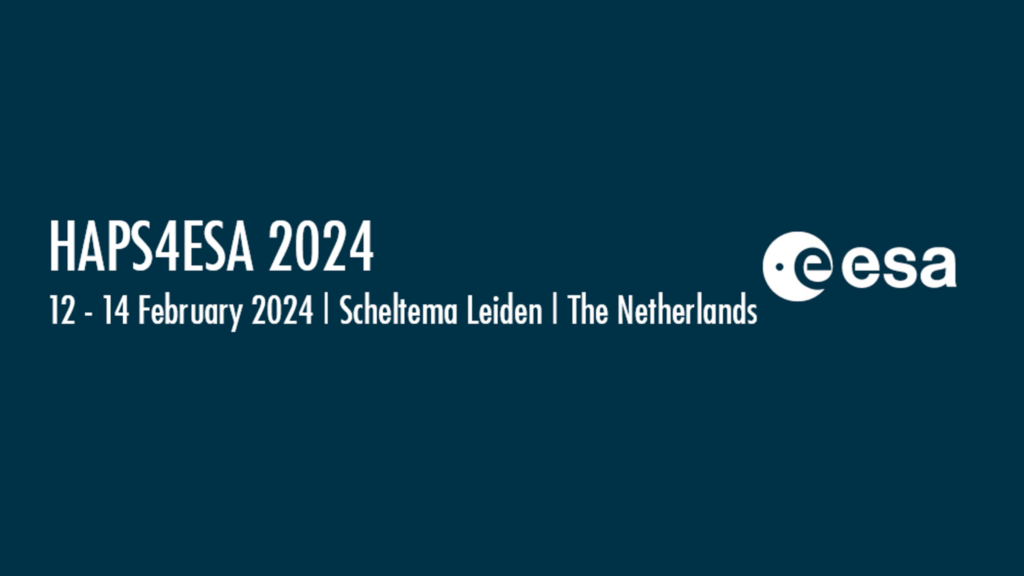
The European Space Agency (ESA) recently convened the HAPS4ESA workshop in Leiden, Netherlands, aimed at gathering insights into the latest advancements in High Altitude Pseudo-Satellite (HAPS) technology and formulating its strategic outlook for 2040.
Representing the HAPS Alliance, numerous members participated in the event to demonstrate their capabilities and advocate for the technology. Key attendees included HAPS Alliance members AeroVironment, AALTO, Deutsche Telekom, Aerostar, Stratospheric Platforms, Sceye, Near Space Labs, MicroLink Devices, and Stratosys. The session information for each member’s talk can be found here.
Leonard Bouygues, a member of the HAPS Alliance on behalf of Sceye, delivered a presentation titled “Airspace Management: Threats and Opportunities for the HAPS Business Model.” The session explored the critical importance of seamlessly integrating HAPS into airspace management systems, leveraging new approaches and technologies, and emphasizing the need for efficiency, cost-effectiveness, and scalability to ensure the success of HAPS.
Mark Ketcham, the Lead Engineering Program Manager at Aerostar, a HAPS Alliance member, delivered a presentation showcasing the remarkable strides in commercial technologies driving the HAPS revolution. Ketcham underscored the pivotal role of breakthroughs in batteries, solar power, and electronics in ushering in a new era of high-altitude lighter-than-air (LTA) platforms that are capable of sustaining operations for months at a fraction of traditional costs. These advancements have unlocked a plethora of potential applications, spanning from wildfire monitoring to maritime security, thus expanding the horizons of what can be achieved with HAPS technology.
In addition to these HAPS Alliance member insights, the workshop featured a diverse range of use cases and perspectives, highlighting the increasing momentum behind HAPS adoption. Representatives from the European Maritime Safety Agency, NASA, and various governmental bodies emphasized the pivotal role of HAPS in enhancing intelligence-gathering services and bolstering capabilities for numerous users. Furthermore, the workshop underscored the substantial efforts across multiple industries to cultivate a robust HAPS ecosystem, emphasizing the collaborative spirit driving progress within the ecosystem.
